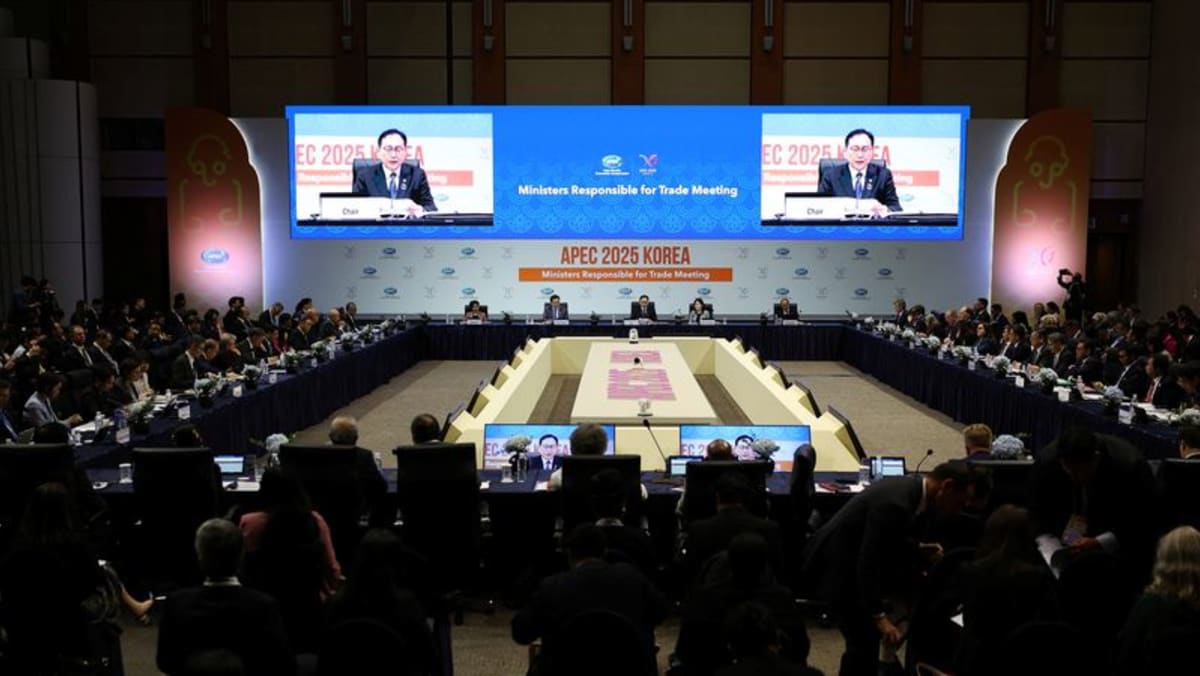South Korea’s Minister for Trade, Cheong In-Kyo, said the joint statement was hard-won, with “significant differences” in positions clear early on in the talks.
But at the last minute, the countries “dramatically” reached an agreement, he said, with the APEC emphasising the importance of global trading mechanisms such as the World Trade Organisation (WTO), as well as sustainable supply chains.
This “sends a highly positive signal to global markets”, he said, adding that “APEC members can work together to navigate the current highly uncertain global trade environment effectively”.
NO JOINT RESPONSE TO US
Cheong said there had been no discussion of “joint responses” to US tariffs, saying it was not possible as “each country faces significantly different circumstances”.
South Korea recorded a US$66 billion trade surplus with the United States last year – behind only Vietnam, Taiwan, and Japan – making it a key target of Trump’s trade tirade.
Highly dependent on exports, the country has been hit hard by the 25 per cent tariffs on automobiles imposed by Trump in early April.
Greer also met South Korea’s Trade, Industry and Energy minister, Ahn Duk-geun, later in the day.
Ahn said in a press conference that the two sides agreed to hold a “second round of technical consultations”.
The South Korean delegation will fly to Washington next week to discuss issues such as trade and economic security.
Ahn said he emphasised to Greer that South Korea has a free trade agreement with the US.
“I made it clear that, against this backdrop of strong industrial cooperation, the current tariff issue has become a significant concern.”
Trump announced additional “reciprocal” tariffs of up to 25 per cent on South Korean exports last month, but later suspended them until early July.
“Our objective is to finalise an agreement before that date, and we are making every effort to meet this timeline,” said Ahn.
“I believe other countries are in a similar situation, and the United States has no reason to delay either.”
